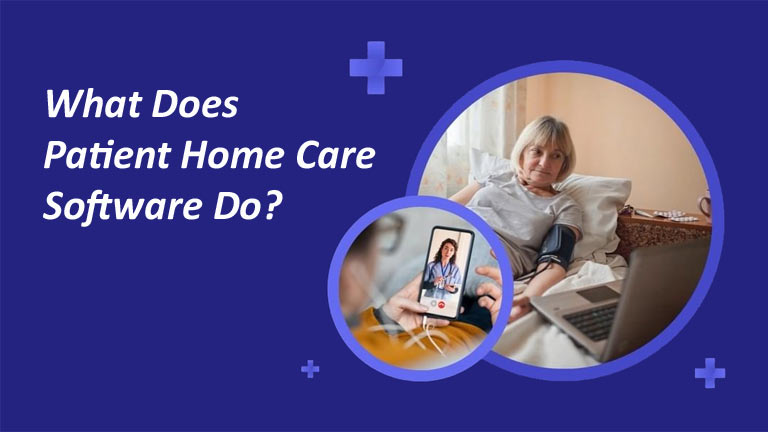
As the demand for home care services increases, agencies turn to technology to streamline operations and provide better patient care. One such technology is home care software. Home care software is a powerful tool that helps agencies manage their daily tasks, from scheduling appointments to managing patient care plans. Learn everything you need to know about what home care software does, its benefits, features, types, how to choose the right one for your agency, common challenges, and how to overcome them here.
Benefits of Using Home Care Software for Agencies
Home care software provides numerous benefits for agencies, including increased efficiency, improved communication, and better patient care. With home care software, agencies can easily manage their schedules, track patient care plans, and communicate with their staff and patients in real-time.
One of the biggest benefits of home care software is increased efficiency. With automated scheduling and billing, agencies can save time and reduce errors. It improves their bottom line and enables them to provide better care.
Another benefit of home care software is improved communication. With instant messaging and real-time updates, agencies can easily communicate with their staff and patients, ensuring everyone is on the same page. It can lead to better patient care and increased patient satisfaction.
Finally, home care software can help agencies provide better care for their patients. With features like medication reminders, care plan tracking, and real-time updates, agencies can ensure their patients receive the best care possible.
Features of Home Care Software
Home care software comes with various features, each designed to help agencies manage their daily tasks more efficiently. Some of the most common features of home care software include:
- Scheduling & Calendar Management: This feature allows agencies to manage their schedules and appointments easily. That includes automated scheduling, real-time updates, and reminders for staff and patients.
- Patient Care Plans: Home care software allows agencies to create and manage patient care plans, including medication schedules, treatment plans, and other important information.
- Billing and Invoicing: It provides simple billing and invoicing, allowing agencies to generate invoices, track payments, and manage their finances more efficiently.
- Communication & Messaging: Home care software includes tools for instant messaging, video conferencing, and real-time updates, enabling agencies to communicate with their staff and patients in real-time.
- Reporting & Analytics: It offers agencies access to detailed reports and analytics, helping them to make informed decisions and improve their operations over time.
Types of Home Care Software
Several types of home care software are available, each designed for different needs and sizes of agencies. Some of the most common types of home care software include:
- Desktop Software: This software is installed on a computer and is typically used by smaller agencies. Desktop software is often more affordable but may have only some of the more advanced home care software features.
- Cloud-based Software: Cloud-based software is hosted on remote servers and accessed online. This type of software is more flexible and scalable, making it ideal for larger agencies.
- Mobile Apps: Mobile apps are designed for use on smartphones and tablets, making it easy for staff to manage their schedules and communicate with patients while on the go.
How to Choose the Right Home Care Software for Your Agency
Choosing the right home care software is essential for any agency looking to improve its operations and provide better patient care. When choosing home care software, consider the following factors:
- Your Agency’s Needs: Consider the size and needs of your agency when selecting home care software. Smaller agencies may benefit from desktop software, while larger agencies may require cloud-based software.
- Features: Look for software with the features you need to manage your daily tasks more efficiently. For example, it may include scheduling, patient care plans, billing, and communication tools.
- Usability: Choose software that is easy to use and navigate. That will ensure your staff can quickly adapt to the new system and provide better patient care.
- Cost: Consider the cost of the software and any additional fees, such as licensing or support costs. Choose software that fits your budget and provides the best value.
Challenges with Home Care Software & How to Overcome Them
While home care software can provide numerous benefits for agencies, some common challenges must be addressed. These challenges include:
- Staff Resistance: Some staff may resist change and want to avoid adopting the new software. To overcome this, provide training and support to help the team adapt to the new system.
- Technical Issues: Any software can have technical issues, such as bugs or glitches. Work with your software provider to address any issues and ensure the software runs smoothly.
- Data Security: Home care software contains sensitive patient data, so it is essential to ensure that the software is secure and compliant with data privacy laws. Work with your software provider to ensure that your data is protected.
Training & Support for Home Care Software
Training and support are essential for any agency implementing home care software. That includes initial training for staff, ongoing support, and access to resources and documentation. Work with your software provider to ensure your team has the training and support they need to use the software effectively.
Home care software is a powerful tool that can help agencies manage their daily tasks more efficiently and provide better care for their patients. With its numerous features and benefits, home care software is quickly becoming a must-have for any agency looking to improve its operations and provide better patient care.




